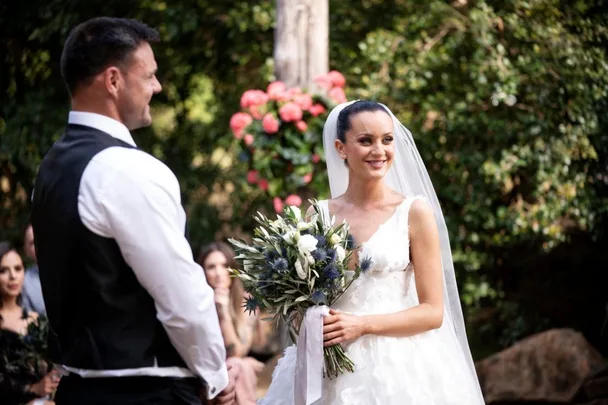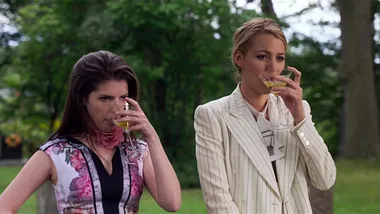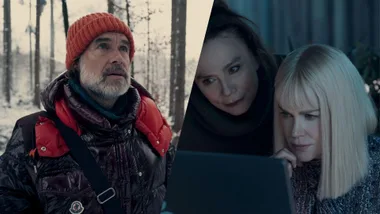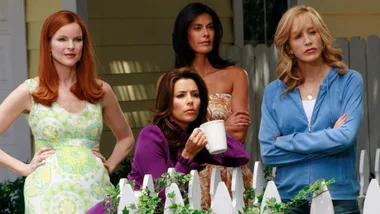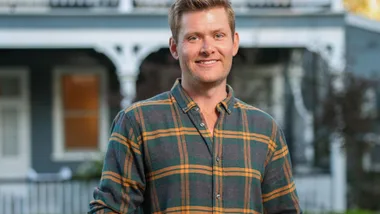Married At First Sight Australia is officially back for its ninth season, and we have mixed emotions. Despite vowing not to watch the show, every year it draws us back in with the promise of drama, entertainment and maybe (just maybe) the possibility of watching true love unfold.
According to relationship coach and principal matchmaker Anna Swoboda, there’s a reason we’re all so obsessed with the show.
“We all want to be in a successful loving relationship,” Anna told marie claire Australia. “When we go on a first date, we hardly know the person, so it’s not that different to the MAFS premise. At first blush things look promising but then often slowly unravel. Watching that process, trying to predict who will last and where things will go wrong and why is a fascinating process. It’s people-watching on steroids.”
Across all nine seasons and 72 couples, only five have actually lasted. Worrying? Yes. But more than that, it’s wildly intriguing. What is it about this show that makes finding love so difficult? Is it a case of basic incompatibility? Feeling trapped in an overly stressful environment? Being easily influenced by the opinions of others? Or maybe it’s a combination of all these factors. Either way, we needed to ask Anna more questions.
Below, she outlines some of the major red flags she sees each season (including which couples have displayed them this season) and lays out four key reasons why MAFS relationships seemingly always fail.

What are some red flags we consistently see on the show?
There are five consistent red flags on MAFS,.
- Emotional baggage
- Lack of compatibility
- Lack of chemistry
- Poor communication skills
- Lack of commitment
In this season of MAFS, compatibility is higher than previous seasons, as seen through Domenica and Jack, Ella and Mitch and Jackson and Olivia. Unfortunately, there are some big misses too — Samantha and Al are a travesty. Both are great people, but so not in the same place in life. We continue to see the red flags of baggage and relationship communication skills in Anthony and Selin and a lack of chemistry with Jack and Selina.

Why do you think so many MAFS relationships fail? (Only 5 of 72 matches have lasted)
Ultimately, I think MAFS relationships fail because the four key drivers of relationship success are not built into the process. They say it’s a scientific process, but it’s clearly not. Based on the actual relationship research, if you seriously wanted to match people, you should be making four key tweaks to the process.
1. Assess relationship readiness by questionnaire and interview.
Being relationship ready. Dealing with major baggage doubles the chances of success where issues are identified, so providing coaching as part one of the show would be majorly beneficial.2. Full compatibility assessment
Looking at key compatibility factors like life values, children, family, money, career, etc. The experts should then only match couples where there is high compatibility, at least above 80%.3. Account for chemistry
Show them photos of lots of people and understand who they find attractive and why. Don’t waste time introducing them to someone who they won’t find attractive! 4. When they hit issues, jump in with relationship counselling and communication skill building
There are three great relationship coaches and the show is designed so that they mostly just watch the train wrecks in slow motion. Don’t just let them flounder, it’s excruciating to watch. That being said, it’s probably more realistic as most people don’t possess these skills or have access to experts to help right there and then.

When asked if most relationships on MAFS are designed to fail, Anna’s answer was a simple yes.
“Mostly yes,” she said. “The compatibility is higher this season, but when you start a new relationship, there are always teething issues. The MAFS process is designed as a pressure cooker to accentuate these, and without some support from the experts things are likely to unravel.”
Whatever our reasons are for watching, it’s even clearer now why we keep coming back. Maybe MAFS makes us feel better about our own relationships, or maybe it’s an important lesson in what we should and shouldn’t expect from our partners. Despite the show’s history proving that it’s not the most legitimate way to find love, there’s always a lesson to be learned, not only for the contestants, but for the viewers as well.
